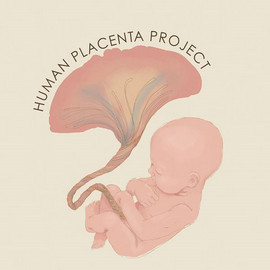The placenta sustains us at the earliest phase of our development and shapes the adults we'll eventually become. And yet it's the least understood, and least studied, of all human organs. At the National Institutes of Health, we're planning a new initiative to learn more about the placenta, in hopes of better health for mothers and their children--not just in pregnancy, but long after.
A chief goal of this initiative is to develop tools for studying the placenta in real time, so we can learn how a placenta develops normally. With that knowledge, we could do a better job of monitoring pregnancies and detecting placental problems earlier. Ultimately, we may be able to identify markers that predict many adverse pregnancy outcomes and take steps to prevent them.
Our first steps are to apply new approaches and attract more scientists to the field.
A Remarkable, but Neglected, Organ
 "The placenta is really the Rodney Dangerfield of organs. It just doesn't get respect. It gets thrown out at the end of the pregnancy. I mean, when you think about it, what other organ does its job effectively, grows when it's supposed to grow, provides the nutrients it's supposed to provide, and yet it knows when its job is over?" That's how Diana Bianchi, M.D., executive director of Tufts Medical Center's Mother Infant Research Institute, put it. And I have to agree.
"The placenta is really the Rodney Dangerfield of organs. It just doesn't get respect. It gets thrown out at the end of the pregnancy. I mean, when you think about it, what other organ does its job effectively, grows when it's supposed to grow, provides the nutrients it's supposed to provide, and yet it knows when its job is over?" That's how Diana Bianchi, M.D., executive director of Tufts Medical Center's Mother Infant Research Institute, put it. And I have to agree.
The placenta is a unique organ by many criteria. It's the only one that's temporary and, with its special combination of maternal and fetal tissue, the only one that's shared. Most important, though: the placenta is a multitasking powerhouse. It delivers life-saving oxygen and vital nutrients to the fetus. It removes carbon dioxide and other waste. It blocks infections, while simultaneously preventing the mother's immune system from rejecting the fetus. And it churns out hormones necessary to maintain pregnancy and support fetal development.
When a placenta malfunctions, bad health outcomes can result for mom, baby or both. In severe cases, mothers may develop gestational diabetes or preeclampsia, a condition marked by dangerously high blood pressure levels. For babies, prematurity can result, with its accompanying risks for low birth weight and neurodevelopmental problems.
And the effects may be far-reaching: evidence is increasing that placental function is implicated in the long-term health and disease of women and their adult children, and possibly even subsequent generations. Researchers are beginning to view pregnancy as a stress test for lifelong maternal health, with placental dysfunction a possible marker, and maybe even cause, of future cardiovascular disease. Likewise, researchers have linked certain variations in placental development, and the supply of nutrients, to the fetus's later development of heart disease and some cancers in adulthood. How exactly that happens, and why, are things scientists are still sorting out.
New Scientific Opportunities
So far, our efforts to study the placenta have essentially been limited to ultrasound exams, blood tests and the examination of placental tissue after delivery. While helpful, those methods can take us only so far. What we need are new approaches and technologies to study the placenta during pregnancy to understand in detail how it's structured, how it develops and how it functions. That understanding could lead to new medical interventions to treat, and even prevent, a broad range of conditions affecting mothers and their children, with a lifelong impact.
Recently, my colleagues and I proposed the "Human Placenta Project" to stimulate research in this field, and we convened a diverse group of experts to chart the way forward.
Here's what some of them had to say about this new research effort:
"I understand that people are more concerned about the baby than the placenta. But for us researchers, the placenta is of key importance--it's the platform of life. Everybody depends on the placenta, and really it sets up lifelong health for the individual."
Graham Burton, M.D., D.Sc., F.Med.Sci., director, Centre for Trophoblast Research, University of Cambridge
"I'm excited about the Human Placenta Project because we're finally focusing attention to the placenta. As a clinician, I see many times where pregnancy outcomes go poorly, and the placenta hasn't performed well, the placenta has stopped functioning well. And yet I don't have a lot of tools to help understand why that happens. And certainly I have limited ability to really monitor the development that placenta, or to optimize placental outcomes so I can optimize pregnancy outcome. By focusing attention on the placenta and getting those tools, we'll be able to improve pregnancy outcome and improve the health of that child--hopefully, improve the health of the world."
Cathy Spong, M.D., deputy director, Eunice Kennedy Shriver National Institute of Child Health and Human Development (NICHD)
"This research effort is pivotal if we're going to have the most healthy babies that we can have."
Joe Leigh Simpson, M.D., senior vice president for research and global programs, March of Dimes
Ultimately, the success of this effort will rely on contributions from scientists who study the placenta and from creative thinkers outside the field, in biotechnology, imaging, data science and other arenas. And, most of all, on contributions from the women who participate in future clinical research studies.
Unlocking the secrets of the placenta is no small undertaking, but the potential benefits are tremendous--for science and for health.
For more about the placenta and the Human Placenta Project, see my previous commentary on the NICHD website.